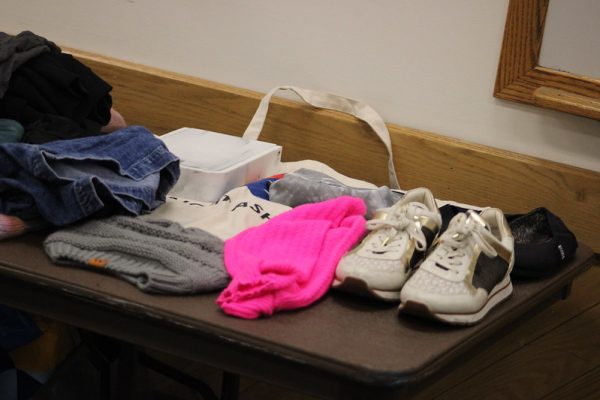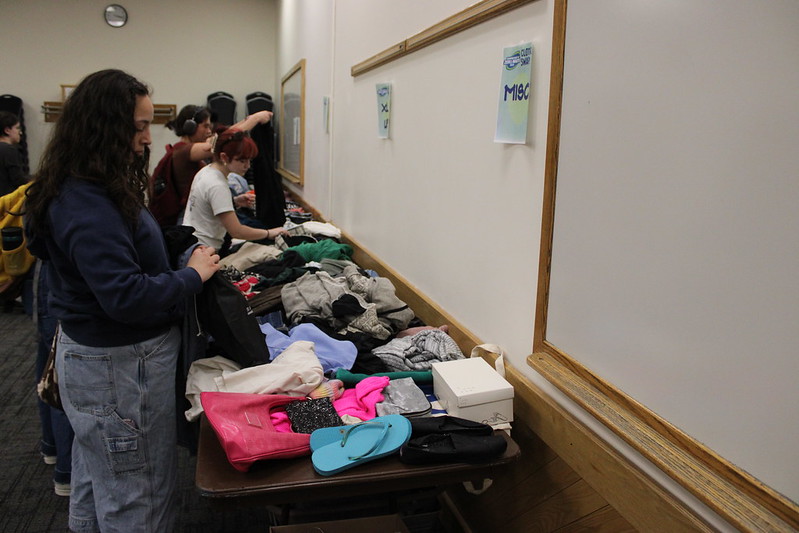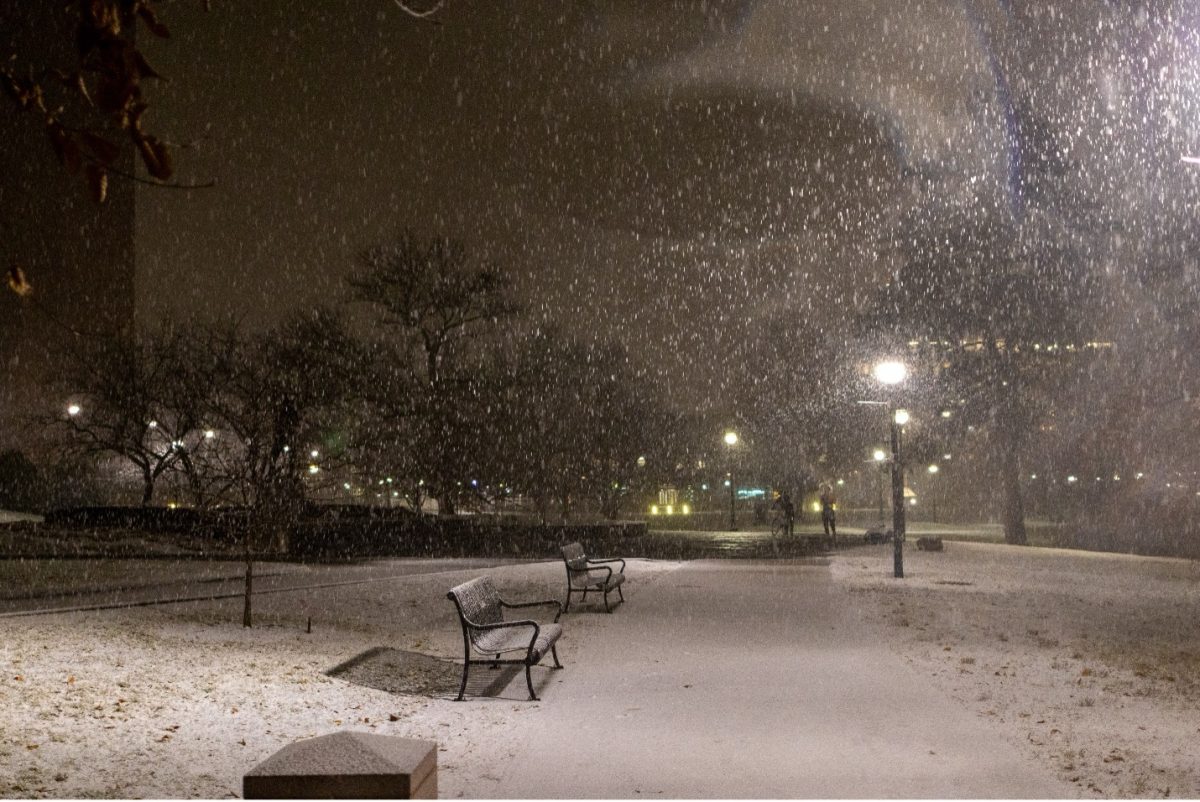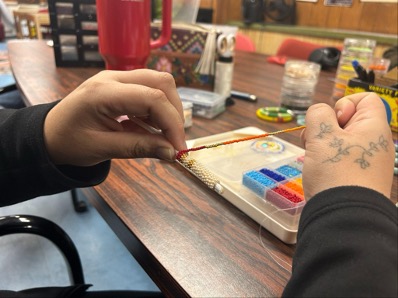The Campus Race to Zero Waste organization (CRZW) held a free clothing swap event in collaboration with the University of Massachusetts Campus Store at the Campus Center to promote sustainable practices to reduce, reuse and recycle clothing items. This was the second clothing swap event the organization had hosted, their first event hosted in Holdsworth Hall on March 12.
Graduate student Cassidy Hammecker organized the event. Hammecker, who is pursuing sustainability science with a concentration in urban sustainability, was eager to get involved when she arrived on campus this fall. She reached out to Laurie Simmons, the campus assistant sustainability manager, who introduced her to the zero-waste initiative. To Hammecker, “it seemed like the thing to be involved with.”
“This campus is such a great space, for not only textile waste awareness, but this type of initiative,” Hammecker said. “It’s making sure that people are getting new and free clothing. Whatever we won’t use will be donated.”
Kayla Lew, a masters sustainability science student, while not directly affiliated with the CRZW, has been assisting Hammecker with setting up and lending an extra hand wherever needed. She noted that despite other organizations doing similar clothing swap events, Hammecker had been the original organizer for the CRZW clothing swap.
Campus Sustainability
The UMass Campus Store has increased its sustainability efforts in the past two years by implementing the TRASE initiative, which is a distinct system of assessment that provides sustainability scores for products in campus stores.
Courtney Weiand, director of sales, marketing and customer relations at the UMass Campus Store, had identified a need for further commitment to sustainability and has worked with Kathy Wicks, director of sustainability at Auxiliary Enterprises, and Ezra Small, campus sustainability manager for Physical Plant, to develop the TRASE rating system, “to score products and allow customers to easily see an item’s sustainable attributes when compared to other options.”
Hammecker had connected with Weiand over their similar interests in sustainable science. Through this connection, Hammecker was able to partner with the UMass Campus Store. The store helped her reserve a room and provide food and beverages for the event. Hammecker also invited UMass Students for Sustainable Fashion & Art to table and advertise.

“It seems like sustainable fashion is pretty well practiced at UMass,” Hammecker said, “which is cool, so I’m hoping that [the clothing swap] leaves an impact.”
Social media, Hammecker said, has also created a large interest in younger generations to recycle and thrift clothing. “I think there has been a shift on social media to start paying attention to not only the consumption of our clothing but the production of it also, which is very important, like the ethical considerations of producing clothing.”
Hammecker wants there to be more focus on preventing clothing “from ending up in someone else’s backyard who does not deserve that.”
If any clothing at the end of the event is not picked up, there are options of giving clothes to donation centers and thrift stores. Hammecker wants to find a donation center or thrift store that is local to the area compared to larger brands and companies.
Sustainable practices aren’t the only thing the event promotes. “I think one of the best things that I see out of this event is the community building,” Lew said. “I feel like a lot of people come and talk to people they haven’t talked to before. Just as a community aspect, it’s really beneficial [for students].”
“I think that this event is awesome, and more people should know about it,” Emanuelle Fernandes, a sophomore biology and Portuguese major, said.
With every event, Lew said she hopes that students will be exposed to new forms of sustainability and will be more willing to “recycle [older clothing items] and see the worth in other clothes that could get a second life.”
UMass Ranks No. 16 in National Competition
UMass competed in the Campus Race to Zero Waste competition Spring 2024, which lasted eight weeks and ran from Jan. 28 to March 23. According to Sustainable UMass, it is a national competition that helps colleges and universities advance campus waste-diversion efforts including reuse, recycling, food waste diversion and waste-minimization efforts.
This year, 152 schools from the U.S. and Canada participated in either the competition or benchmark divisions. The program aims to assist colleges and universities in reaching zero waste, which the program defines as over 90 percent of campus waste diverted from trash.
In the latest scoreboard, which releases weekly, the UMass ranks 16 out of 71 schools in the Diversion Category, with a diversion percentage of 47.606. The University’s highest ranking is in the Food Organics category, where it places eighth with 80 points.
Kalina Kornacki can be reached at [email protected]. Alexandra Rowe can be reached at [email protected].




















